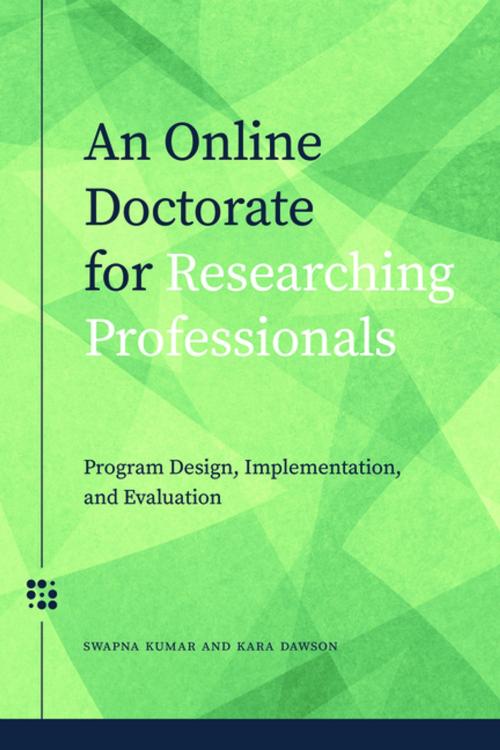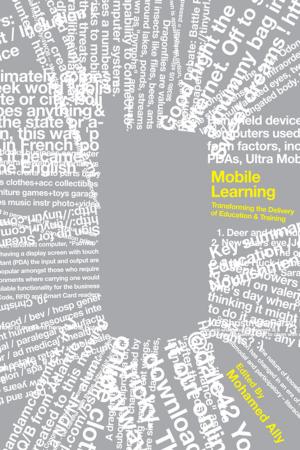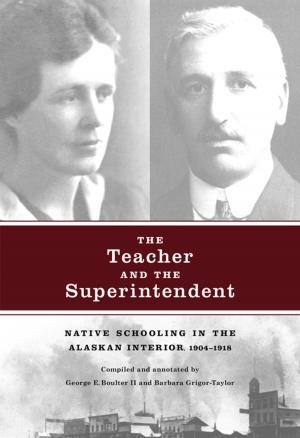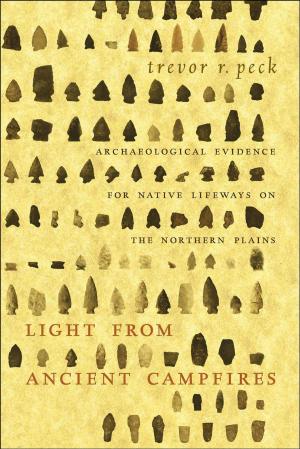An Online Doctorate for Researching Professionals
Program Design, Implementation, and Evaluation
Nonfiction, Reference & Language, Education & Teaching, Home Schooling| Author: | Swapna Kumar, Kara Dawson | ISBN: | 9781771992091 |
| Publisher: | Athabasca University Press | Publication: | May 23, 2018 |
| Imprint: | AU Press | Language: | English |
| Author: | Swapna Kumar, Kara Dawson |
| ISBN: | 9781771992091 |
| Publisher: | Athabasca University Press |
| Publication: | May 23, 2018 |
| Imprint: | AU Press |
| Language: | English |
The interest in and demand for online terminal degress across disciplines by professionals wishing to conduct research and fulfill doctoral degree requirements at a distance is only increasing. But what these programs look like, how they are implemented, and how they might be evaluated are the questions that challenge administrators and pedagogues alike. This book presents a model for a doctoral program that bridges theory, research, and practice and is offered completely or largely online. In their described program model, Kumar and Dawson enable researching professionals to build an online communtiy of inquiry, engage in critical discourse within and across disciplines, learn from and with experts and peers, and generate new knowledge. Their program design is grounded in the theoretical and research foundations of online, adult, and doctoral education, curriculum design and community-building, implementation and evaluation. The authors, who draw on their experience of implementing a similar program at the University of Florida, not only share data collected from students and faculty members but also reflect on lessons learned working on the program in diverse educational contexts. An important guide for program leaders who wish to develop and sustain an online professional doctorate, An Online Doctorate for Researching Professionals will also be a valuable resource for higher education professionals seeking to include e-learning components in existing on-campus doctoral programs.
The interest in and demand for online terminal degress across disciplines by professionals wishing to conduct research and fulfill doctoral degree requirements at a distance is only increasing. But what these programs look like, how they are implemented, and how they might be evaluated are the questions that challenge administrators and pedagogues alike. This book presents a model for a doctoral program that bridges theory, research, and practice and is offered completely or largely online. In their described program model, Kumar and Dawson enable researching professionals to build an online communtiy of inquiry, engage in critical discourse within and across disciplines, learn from and with experts and peers, and generate new knowledge. Their program design is grounded in the theoretical and research foundations of online, adult, and doctoral education, curriculum design and community-building, implementation and evaluation. The authors, who draw on their experience of implementing a similar program at the University of Florida, not only share data collected from students and faculty members but also reflect on lessons learned working on the program in diverse educational contexts. An important guide for program leaders who wish to develop and sustain an online professional doctorate, An Online Doctorate for Researching Professionals will also be a valuable resource for higher education professionals seeking to include e-learning components in existing on-campus doctoral programs.















